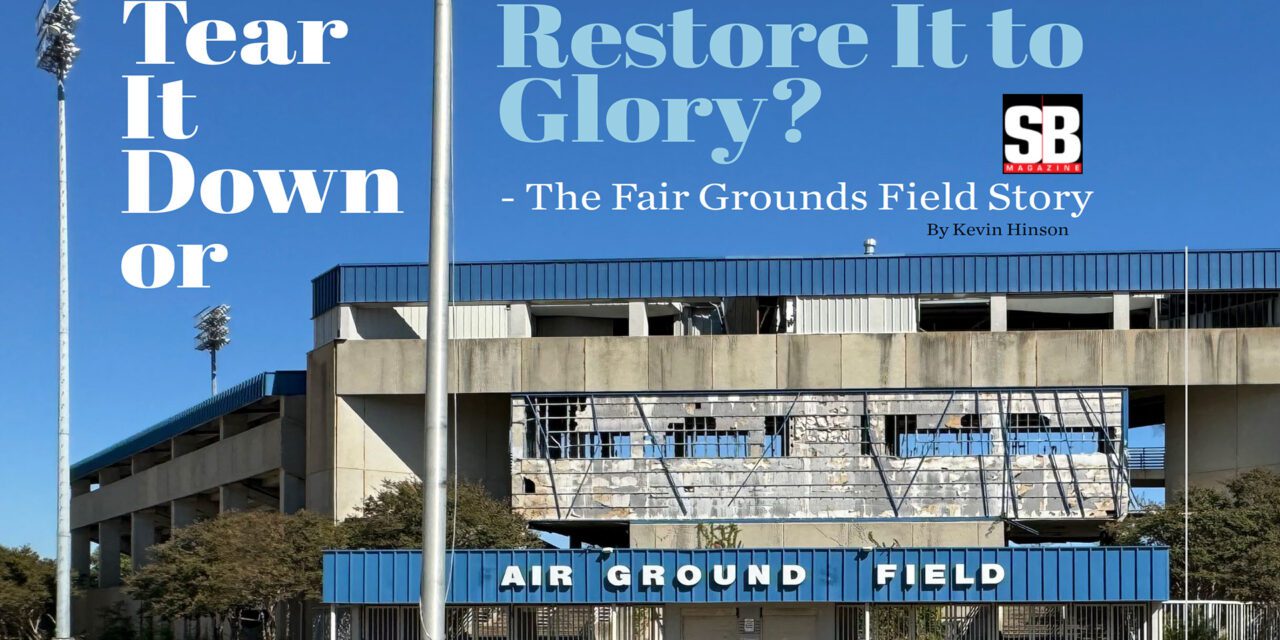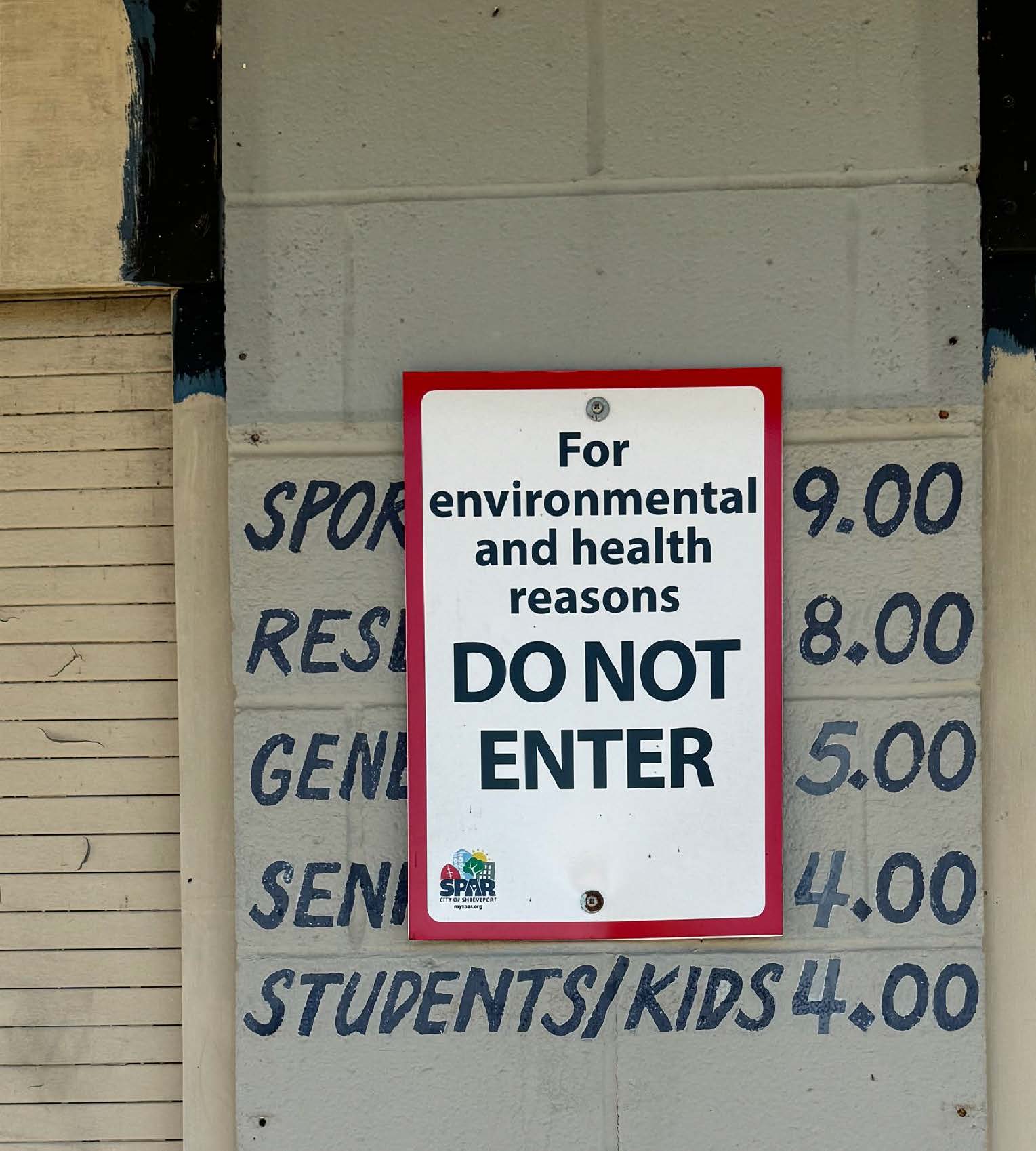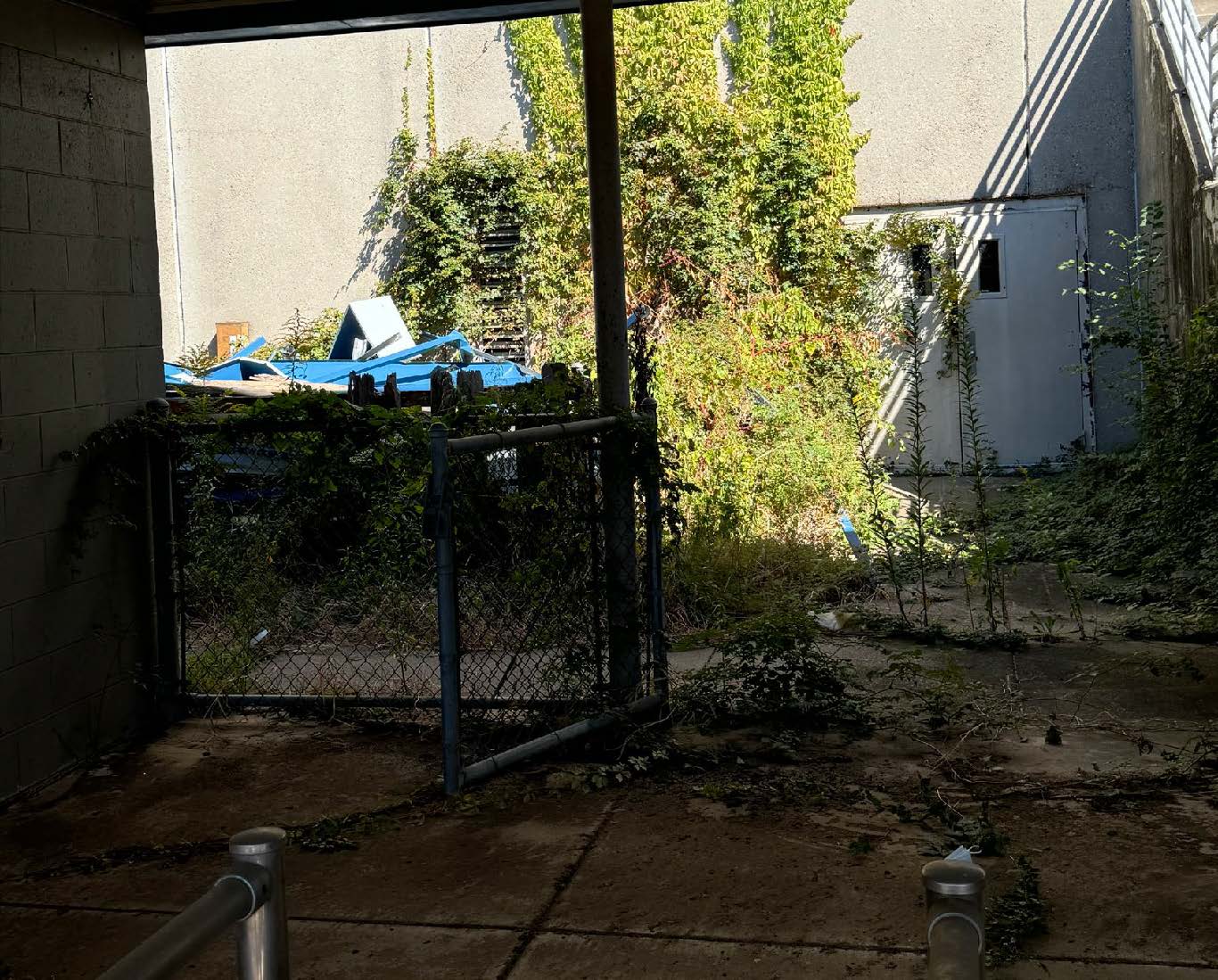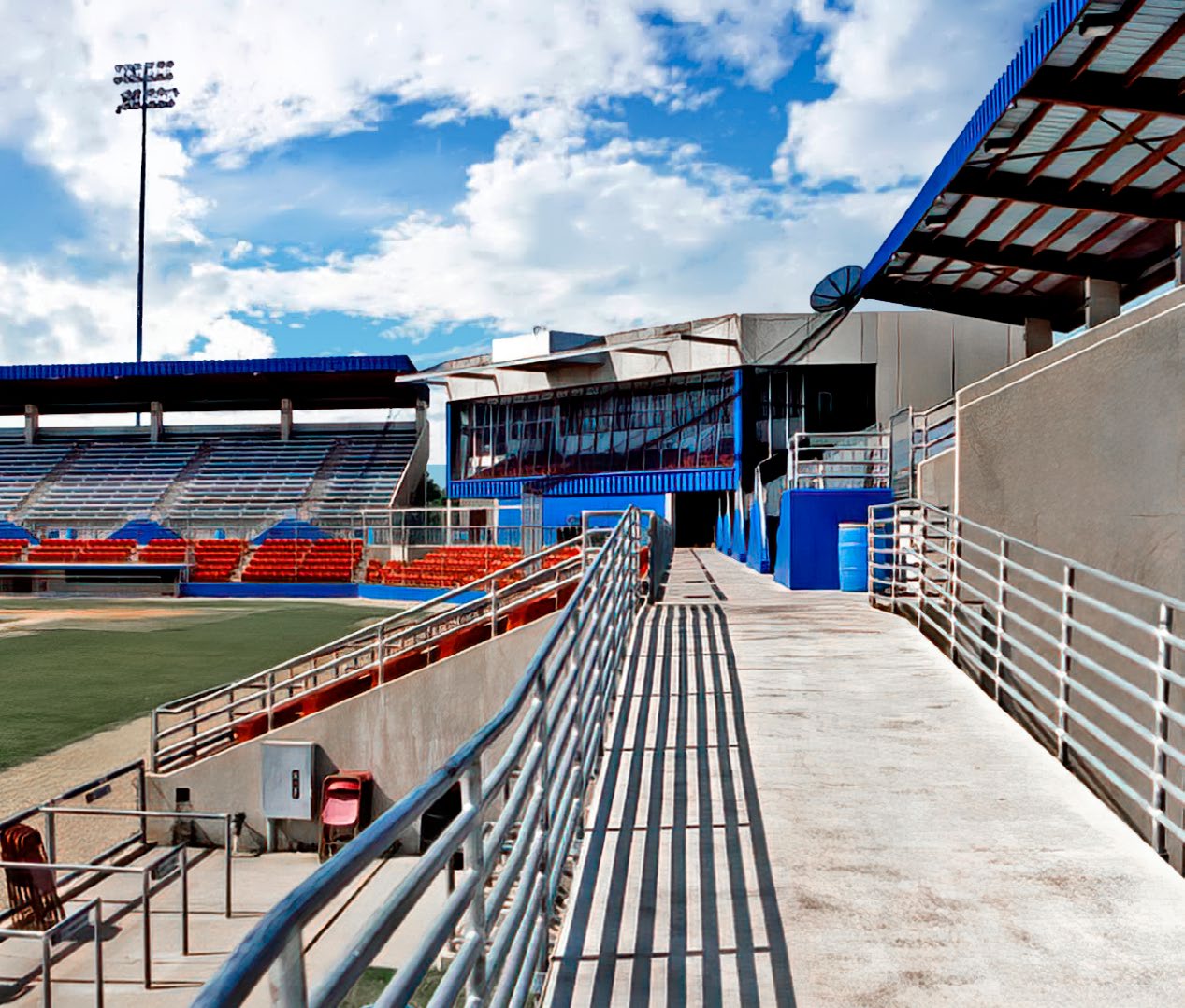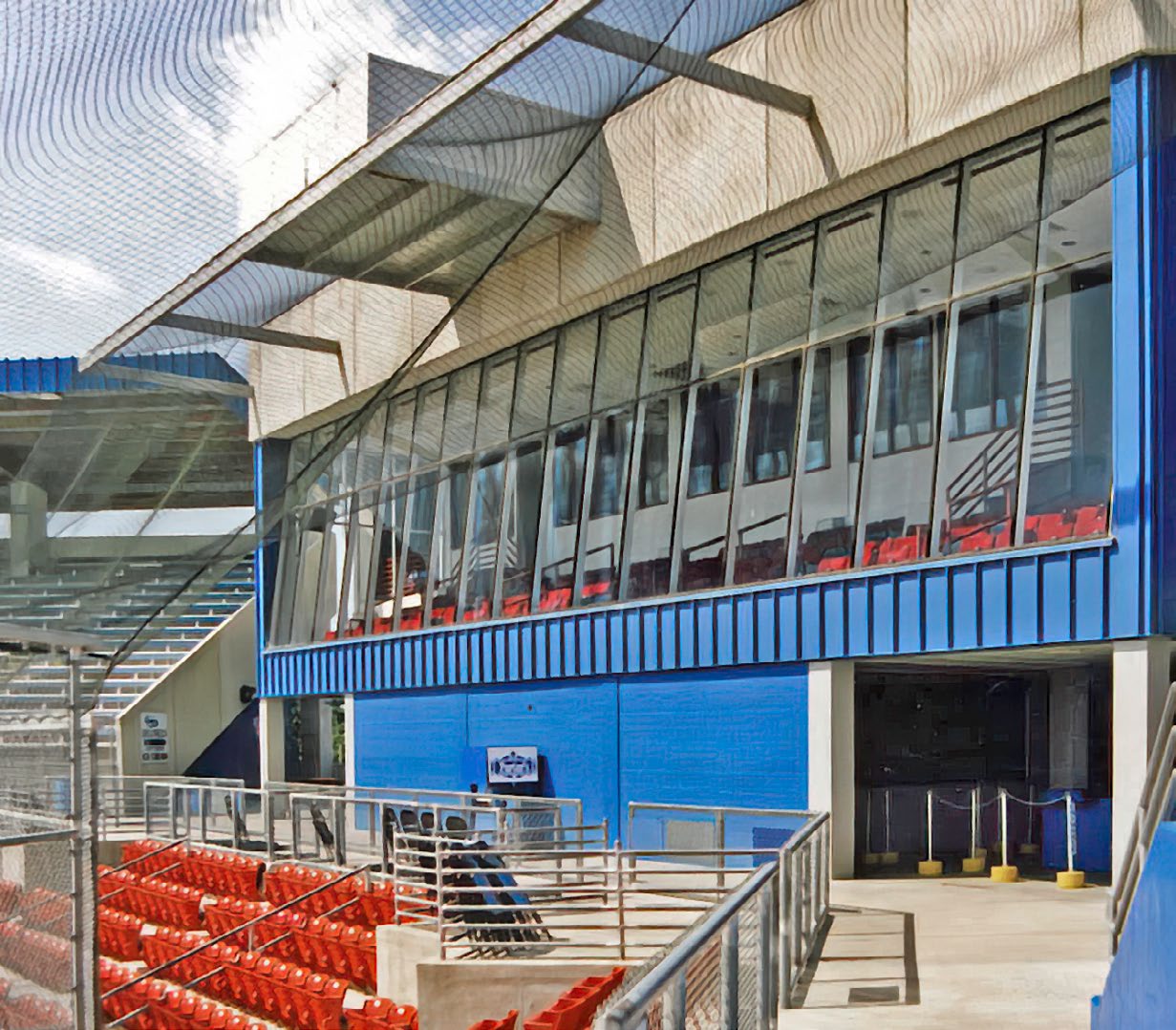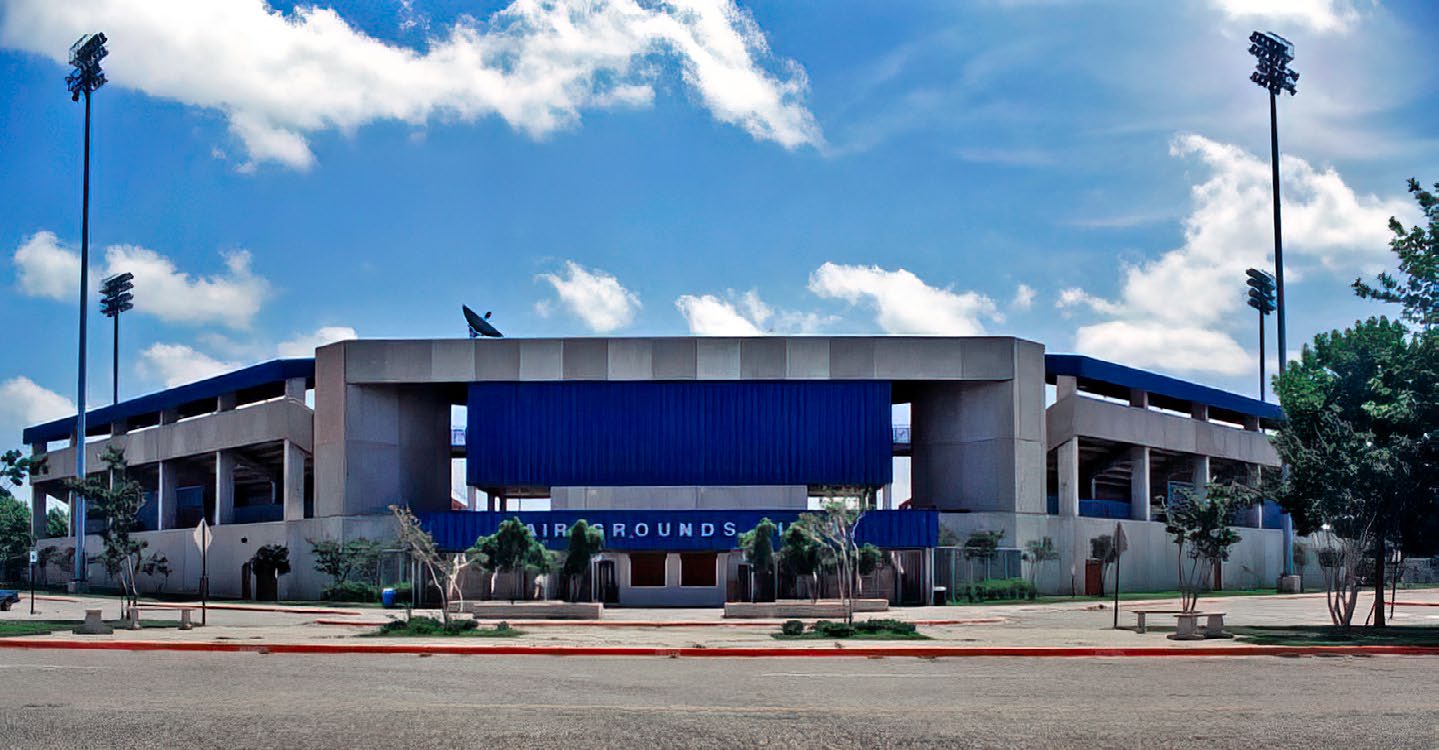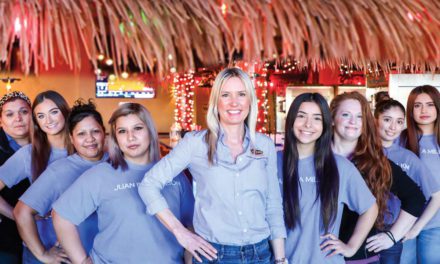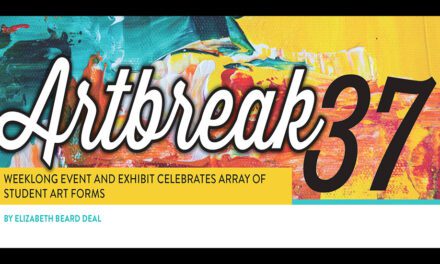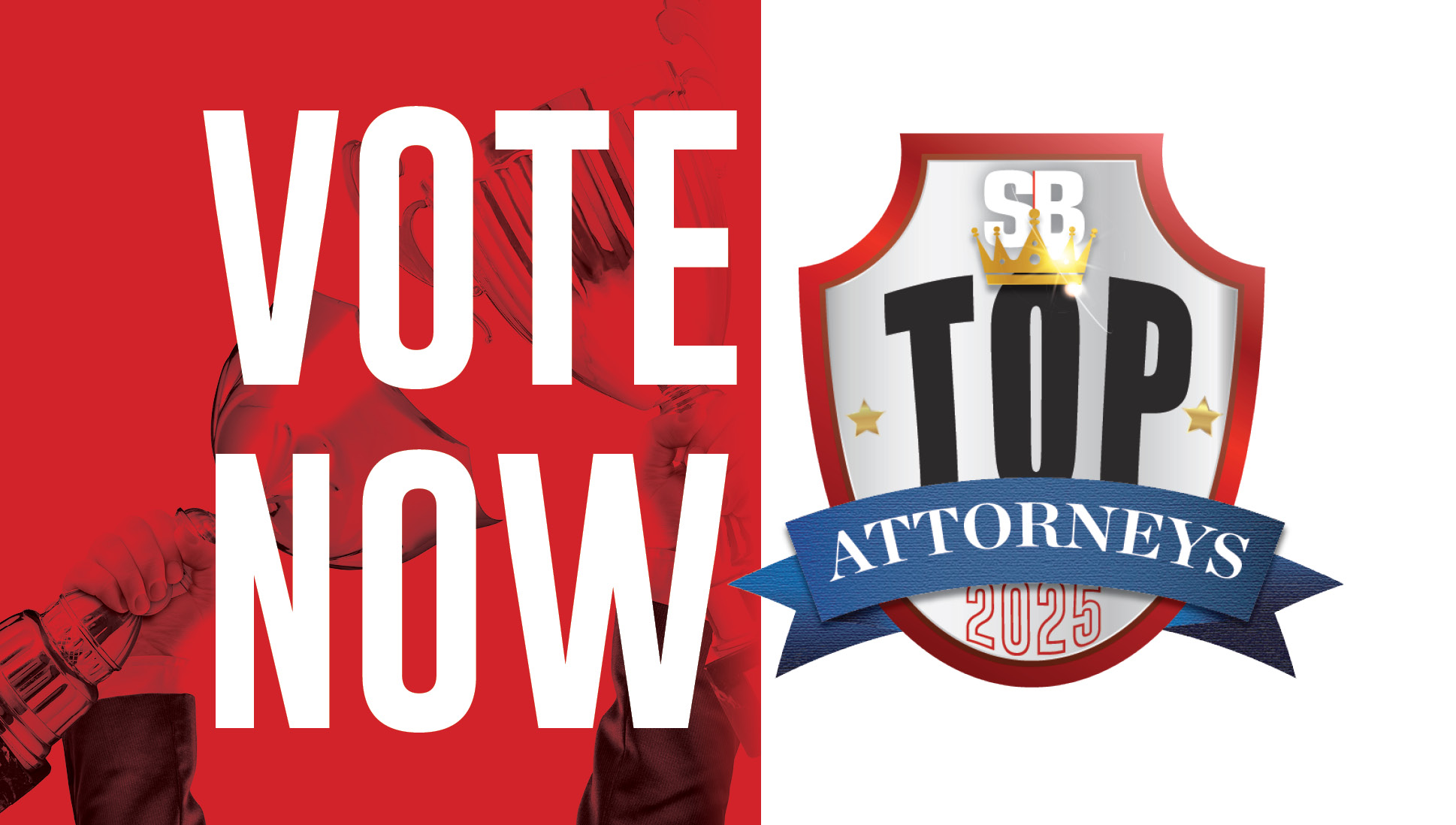One of Shreveport’s most beloved and iconic landmarks is now the centerpiece of an ongoing conflict of interest between nostalgia and facing reality. Fair Grounds Field was erected in 1986 during Mayor John Hussey’s administration after a successful vote on a bond issue to build the stadium. Another bond issue vote in 2019 prolonged the stadium’s demolition when Shreveporters voted no to Mayor Adrian Perkins’ request for $1 million to demolish the stadium. However, in early September 2022, that demolition ultimately began. Friends of Fair Grounds Field, a non-profit formed in 2022 after hearing news of the Perkins administration’s plans to demolish the stadium, immediately filed a lawsuit that month with the city, which abruptly halted demolition on October 3, 2022. Now, the issue has stretched across two mayoral administrations to the desk of Mayor Tom Arceneaux. At this point, the issue seems to be at a sbmag.net | nov. 2024 9 stalemate: the Arceneaux administration has laid out precise requirements for Friends to meet to cease the stadium’s demolition. They will not meet with Friends for any further negotiations unless they withdraw the lawsuit, and they will be taking bids for demolition in the meantime unless those conditions are met. On the other side, Friends wants to meet with the mayor or city council to discuss possibilities for the field and refuse to withdraw the lawsuit because they fear the Arceneaux administration will then bulldoze the stadium.
The situation at hand could be better…nobody wants to see the demise of a Shreveport cultural landmark. Fair Grounds Field has hosted consistent tenants from its inception, in addition to the innumerable high school and collegiate baseball games: The Shreveport Captains and Swamp Dragons were minor league teams (both AA) who competed in the Texas League and were farm teams for the California Angels, Milwaukee Brewers, Pittsburgh Pirates, and the San Francisco Giants. The inaugural year for the Captains was 1986, who became the Swamp Dragons after the 2000 season, a run that would only last two seasons; they moved to Frisco, Texas, after the 2002 season and became the Frisco RoughRiders. Undeterred, the Shreveport-Bossier Captains began playing at the stadium starting in the 2003 season and played through the 2011 season. This team was not a farm team with the MLB but played as part of the American Association of Independent Professional Baseball (who is affiliated with the MLB today). After the 2011 season however, the team moved to Laredo, Texas and became the Laredo Lemurs. The 4,200-seat venue has not had a primary tenant since. After 13 years without activity, Fair Grounds Field is looking the worse for wear. The ruins the stadium has fallen into are shocking (yours truly was given a tour of the stadium last year and was appalled by the dilapidation and squalor) and seem fit only for the stadium’s last tenant and a point of contention in Friends’ initial lawsuit against the city: bats.
These unwanted guests found their way into the stadium by the thousands through cracks and crevices in the concrete and carried with them the risk of histoplasmosis, which is a respiratory disease that comes from inhaling the spores from dried bat guano (another name for feces), which the stadium had a massive amount of and would spread throughout the atmosphere during demolition. Friends contended that the Perkins administration did not do its due diligence in ensuring public safety by removing the bat guano prior to demolition (the bats themselves were removed by a Denham Springs-based company in August 2022, at a cost of $472,806 to the city), an issue that Parish Commissioner (and Friend) Roy Burrell reached out to then-Governor John Bel Edwards over, who then got the Louisiana Department of Public Health involved. That strategy worked: the demolition was halted for a time because of the guano that was still left behind. Today under the Arceneaux administration, proper disposal of the guano will be part of the demolition plans, which the city is now taking bids for. The Arceneaux administration has allocated $600,000 from the American Rescue Plan passed in March of 2021 for the demolition. Bill Robertson is the head of Friends of Fair Grounds Field, and he and Friends have been going public with their efforts to save the stadium for some time now. After filing the lawsuit in September 2022 to stop the demolition, Friends published open letters in March of 2023 and February of this year. Robertson and Mayor Arceneaux met on April 4th to discuss the situation. In that meeting, Mayor Arceneaux laid out his criteria for further delaying the demolition of Fair Grounds Field as per their request and advised Mr. Robertson about the prior contact he had had with a representative for Link Coleman (of UL-Coleman Properties and a Friends member who authored the
public letter in March of 2023) on behalf of Friends during his campaign for mayor in 2022. Then on August 26th this year, Mr. Robertson wrote letters that were released to the media to some of Louisiana’s congressional delegation, Speaker of the House Mike Johnson and Senator John Kennedy, as well as Governor Jeff Landry, to intervene and stop the demolition of Fair Grounds Field. In the letters, Robertson asked the delegation to verify if the $600,000 worth of funds from the ARP for demolition of the stadium was a legitimate use, which he deems “shortsighted.” He also included the proposed renderings in the letters that Friends is hoping for in conjunction with Coe Architecture International as the renovators of the stadium. The design is intended to mirror the State Fair Agricultural Pavilion and Fenway Park, the home of the Boston Red Sox. Christoper Coe, an architect with Coe Architecture, insists the stadium is structurally sound and would be less expensive to renovate than building a brand-new stadium. Obviously $600,000 would not cover the cost of the entire renovation of Fair Grounds Field, but Friends has met with private and public sector partners who say they’re interested in investing in the stadium’s renovation. This would be crucial to the financing and maintenance of a newly renovated Fair Grounds Field, because there is currently no baseball team lined up as a tenant should the stadium be renovated (one of the Arceneaux administration’s objections to their plans). Friends also disagrees with the Arceneaux administration’s plans to expand the parking lot after the demolition of the stadium instead of building a new one in its place; after 18 months of planning and deliberations, the cost of building a new baseball stadium with REV Entertainment was deemed too expensive for the city (at a cost of $115 million in bonds) and the two parties amicably split ways with hopes of future business together.
Mayor Arceneaux (who publicly shared his fond memories of attending Fair Grounds Fields’ groundbreaking and first game) responded to the delegation with a letter of his own on August 30th explaining his administration’s side of the case. The four criteria that must be met by Friends (or whomever they may find to participate) for the administration to consider their proposals would be: for the city’s contribution to not exceed the estimated cost of demolition, a party other than the city financing the entire restoration of Fair Grounds Field, somebody besides the city maintaining and operating the stadium at no net expense to the city, and the $600,000 must be put up by somebody in escrow in case the plans fell through. This has been Mayor Arceneaux’s position since he was campaigning for mayor in 2022, when he and Friends first had the aforementioned contact (through counsel). As far as Friends’ position that the stadium is not beyond repair, Mayor Arceneaux maintains that the stadium is “beyond its useful life,” “beyond rehabilitation,” not to mention an “eyesore.” As aesthetically pleasing as the artist renderings of the refurbished Fair Grounds Field look, Mayor Arceneaux has told local media outlets that it still “…would not meet minor league requirements,” and requirements mandated for minor league stadiums by the MLB would cost “… millions and millions of dollars.” Mayor Arceneaux also says the subsidies required by the city (without a self-sustaining tenant) for maintenance and operation would divert funds away from youth and other programs related to SPAR that are “…a higher priority for my administration.” His goal is for the stadium to be demolished prior to the Independence Bowl, which this year is December 28th. However, the Louisiana State Fair may disrupt that goal, as demolition could not proceed during the fair. The delegation has not responded to either party’s letters.
At the time of this writing, Bill maintains Friends’ stance that “Fair Grounds Field is structurally sound and can be rebuilt for ‘pennies on the dollar’ compared to building new. Options exist for sharing the burden of ownership, renovation and management with the city. Other facilities at the fairgrounds are being upgraded. Fair Grounds Field should be included. Rebuilding Fair Grounds Field can unify Shreveport around our shared interest in youth and sports. It sends the right signal to all of Shreveport, especially those in our inner city, about the value of our quality-of-life facilities.” Meanwhile at Government Plaza, Mayor Arceneaux’s position has not changed from any public statements he has made previously, the city is currently taking bids for the demolition, and he stresses that, “When any demolition is done it will comply with environmental and public health protocols regarding both the bats and their waste.” It seems at this point Shreveporters, you may want to take some final pictures, because they’ll last longer. If a bid comes through, the stadium will be responsibly and in an environmentally conscious way, demolished. But perhaps when the old is demolished, barring an 11th hour intervention, the way is cleared for the new. Nobody immediately prefers the new, but whatever that new may be, it could be something for a new generation of Shreveporters to make fond memories of like yesteryear.

